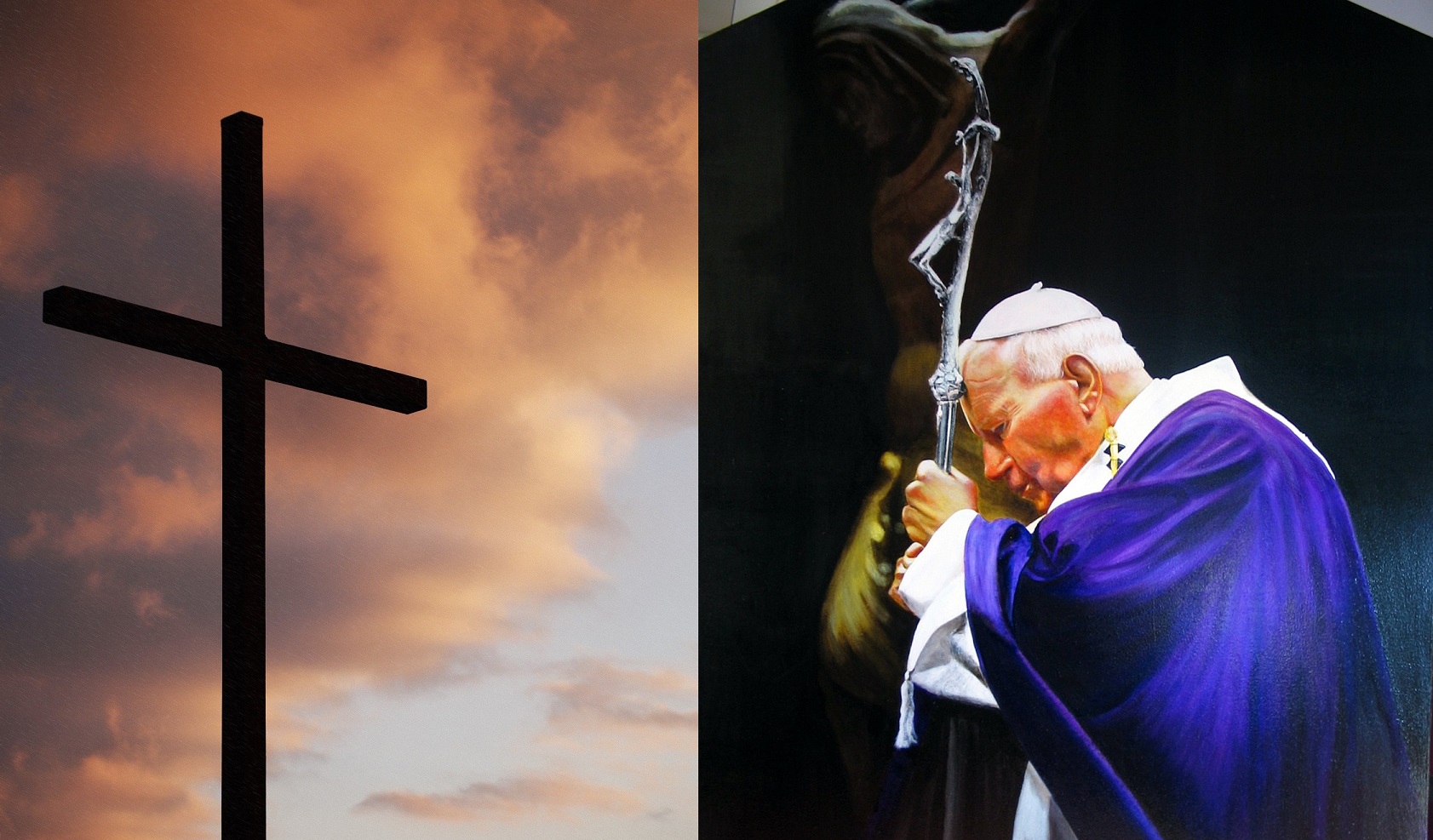Papal Good Friday – 5 thoughts of St. John Paul II on the 16th anniversary of his death


Free-Photos z Pixabay; Bogdan Konikowski z Pixabay
The 16th anniversary of the death of St. John Paul II coincides with Good Friday. In 2005, the last days of the Polish Pope’s life fell on the first days of the Easter season. John Paul II left for the Father’s house on the eve of the Divine Mercy Sunday that he had established. Many emphasize the symbolism of the weaving of these dates. In an interview with PAP (Polish Press Agency), the former papal secretary, Cardinal Stanisław Dziwisz, emphasizes that the departure of the Holy Father was a lesson in unlimited trust in God’s mercy.
What about death, the cross, but also about the truth of God’s mercy, the same St. Pope John Paul II said?
1. “Each one of you is being challenged to listen to the words of the Lord: “whoever wishes to be my follower must deny his very self, take up his cross each day and follow in my steps” (Lk . 9:23): the cross of rejecting the ways of thinking which contradict the teachings of Jesus; the cross of rejecting desires and behavior which are not worthy of the followers of Christ. You are being invited to allow the transforming grace which flows from the Cross of Christ to enter your lives – especially through the reception of the Sacrament of Penance and Reconciliation”. – Message of the Holy Father John Paul II to youth taking part in the way of the cross during World Youth Day; Manila, January 13, 1995
2. “Where might the human being seek the answer to dramatic questions such as pain, the suffering of the innocent and death, if not in the light streaming from the mystery of Christ’s Passion, Death and Resurrection?” – Encyclical Letter “Fides Et Ratio” September 14, 1998.
3. “Father Maximilian leaves the line, to be accepted as a candidate for the ‘hunger bunker’, in the place of Franciszek Gajowniczek: he makes the decision, in which the maturity of his love and the strength of the Holy Spirit are manifested at the same time, and carries out this evangelical decision to the end: he gives his life for a brother
(…) Maximilian Kolbe also suffered death: in the end, he was given the coup de grace with a fatal injection. However, in this death the spiritual victory over death, similar to that which took place on Calvary, was manifested together. And therefore he ‘did not suffer’ death, but ‘gave his life’ for a brother. In this there is the moral victory over death. ‘To give one’s life for a brother’ means to become, in some way, a minister of one’s own death”. – The pilgrimage to Poland. Homily during the Holy Mass; Niepokalanów June 18, 1983.
4. “What happened the day after the institution of the Eucharist, even that went beyond the realm of human understanding: the crucifixion of God, the death of the Son of God on the tree of ignominy.
And yet we must announce precisely this death, precisely this death, because through him the invincible life has manifested itself. Through him the sacramental truth of the Eucharist was also fulfilled, so inconceivable for man.
I am the truth. As truth I am way and I am life. We believe in this life.
On the day of his resurrection, Christ definitively confirmed the truthfulness of the whole messianic mission ”- IV Pilgrimage to Poland. Homily during the Holy Mass; Olsztyn, June 6, 1991
5. “Let us make our own the Psalmist’s exclamation which we sang in the Responsorial Psalm: the Lord’s mercy endures for ever! In order to understand thoroughly the truth of these words, let us be led by the liturgy to the heart of the event of salvation, which unites Christ’s Death and Resurrection with our lives and with the world’s history. This miracle of mercy has radically changed humanity’s destiny. It is a miracle in which is unfolded the fullness of the love of the Father who, for our redemption, does not even draw back before the sacrifice of his Only-begotten Son” – Homily of the II Sunday after Easter; Vatican, April 22, 2001.



Dodaj komentarz